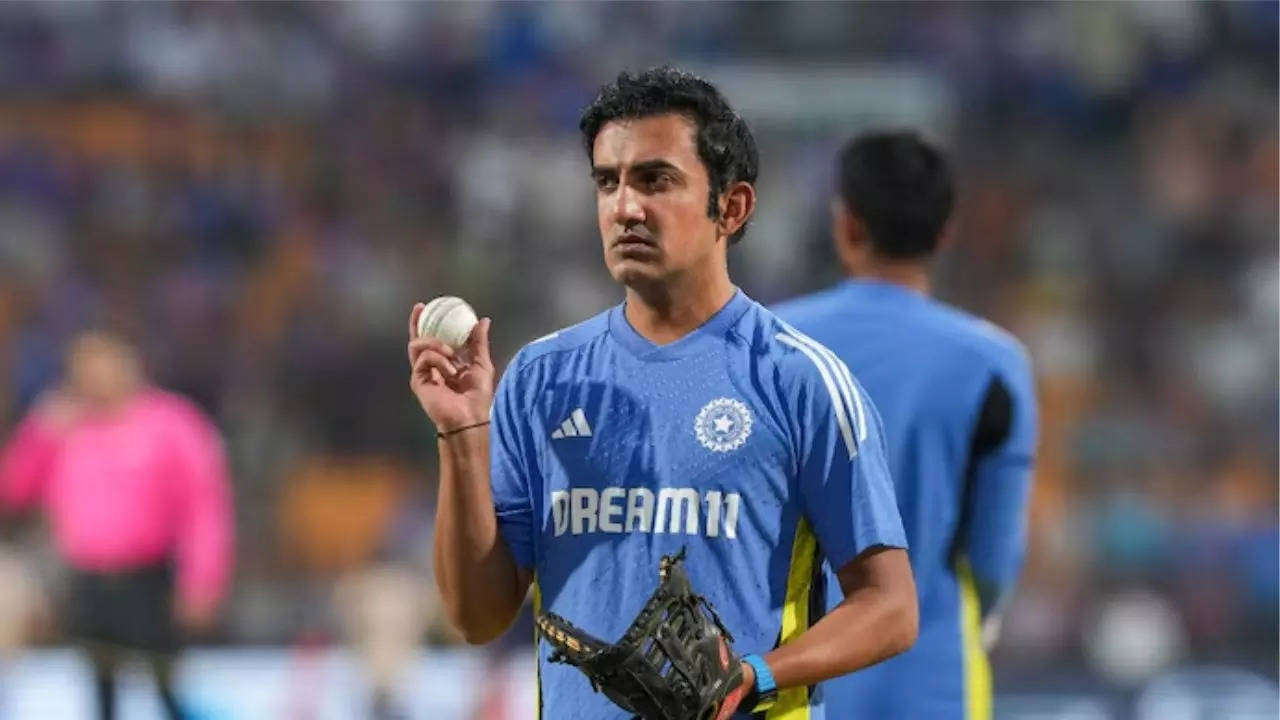 |
|
The recent performance of the Indian cricket team has cast a shadow over the tenure of head coach Gautam Gambhir. Following a string of disappointing results, including a loss in the Test series against New Zealand and a current 1-2 deficit against Australia in the Border-Gavaskar Trophy, questions have arisen about Gambhir's ability to lead the team. This has led to revelations about the selection process that brought him to the helm, painting a picture of a compromise rather than a first-choice appointment. Reports emerging from within the Board of Control for Cricket in India (BCCI) indicate that the organization's initial preference for the head coach position was VVS Laxman, the current chief of the National Cricket Academy (NCA). Laxman, a legendary figure in Indian cricket with a distinguished playing career, was seen as the ideal candidate to succeed Rahul Dravid. The reasons for the BCCI's eventual shift to Gambhir remain somewhat shrouded in ambiguity, but reports suggest that the failure to secure a high-profile overseas coach willing to commit to coaching across all three formats played a significant role. The implication is that the appointment of Gambhir was a pragmatic solution rather than a result of a comprehensive evaluation of all available candidates. This raises significant questions about the BCCI's selection process and the potential impact this compromise has had on team performance.
The lack of consensus regarding Gambhir's appointment is further compounded by reports suggesting communication issues between the coach and several players within the team. Sources within the BCCI have indicated that Gambhir's communication style is not as effective or well-received as that of his predecessors, Ravi Shastri and Rahul Dravid. This deficiency in communication can be a significant obstacle to building team cohesion and trust, which are crucial elements in high-pressure sporting environments like international cricket. The lack of harmony within the team dynamic, coupled with the on-field struggles, has placed Gambhir's position under immense pressure. His perceived failure to establish a rapport with the players is arguably hindering the team's performance, potentially contributing to their recent defeats and creating further uncertainty about their future prospects. The BCCI, under immense scrutiny regarding its choices, is now weighing its options regarding the team’s future leadership.
The upcoming Sydney Test match and the Champions Trophy 2025 will likely play a critical role in determining Gambhir's fate. The BCCI has made it clear that if the team's performance doesn't see a marked improvement in these crucial matches, Gambhir's position as head coach will be untenable. This highlights the precarious nature of his role, demonstrating the high-stakes environment in which he operates. The weight of expectations, the lack of a strong initial backing from the BCCI, the perceived communication issues with the players, and the team's recent struggles combine to create a perfect storm of pressure. The coming weeks and months will be decisive, not just for the Indian cricket team's performance on the field but also for Gambhir's professional future. The decision to appoint Gambhir, while potentially necessitated by logistical constraints, has inadvertently placed him in a vulnerable position, leaving his legacy as head coach hanging precariously in the balance. The saga serves as a compelling reminder of the complexities involved in coaching high-profile sports teams and the enormous pressure faced by those leading such organizations.
The entire situation underscores the need for a more transparent and comprehensive approach to selecting coaching staff in elite sports. The compromise approach adopted by the BCCI in this instance seems to have backfired, highlighting the potential risks of selecting a coach based on factors other than pure merit and suitability for the role. The focus on a candidate's perceived ability to manage all three formats rather than their individual coaching qualities has been critiqued as a flawed approach. This incident serves as a valuable lesson for sporting organizations worldwide, emphasizing the importance of thorough due diligence and prioritizing the selection of a head coach based on skills, experience, communication capabilities, and the ability to inspire and unite a team, rather than being influenced by expedient compromise solutions.
Source: Not Gautam Gambhir! 134-Test Veteran Was BCCI's First Choice For Team India Head Coach: Report
